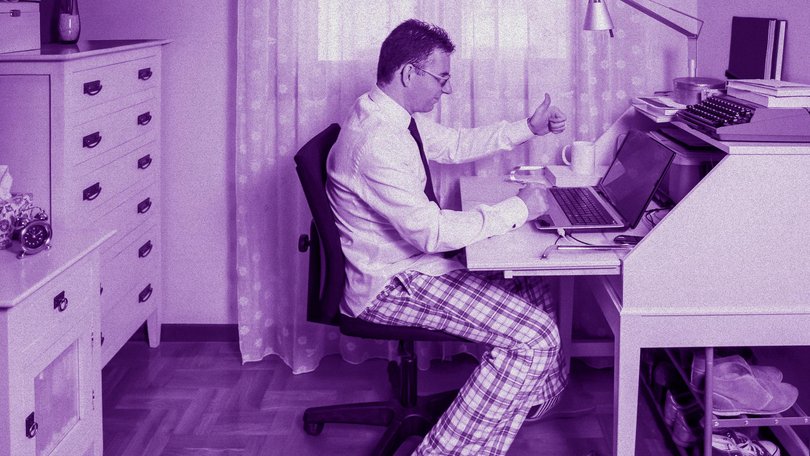JENI O’DOWD: It’s time to change the conversation around working from home and embrace a diverse future

The shift to working from home has become an entrenched part of Australian work culture. No amount of corporate begging, government mandates, or office perks seems enough to get people back to their desks full-time.
Three years after the pandemic, we’ve grown used to the pyjama-clad freedom that remote work offers. The convenience of juggling meetings with midday runs, laundry, and the occasional coffee with friends is hard to give up.
And best of all, there are no painfully slow and frustrating commutes that Sydneysiders once endured twice a day.
Sign up to The Nightly's newsletters.
Get the first look at the digital newspaper, curated daily stories and breaking headlines delivered to your inbox.
By continuing you agree to our Terms and Privacy Policy.But here’s the uncomfortable truth: working from home isn’t quite the productivity paradise we like to imagine. For many, the cracks are starting to show.
While businesses quietly grapple with the reality that not all home offices are created equal, young professionals are starved for social interaction and mentorship.
The resistance to returning to the office isn’t just about convenience; it’s driven by a deeper desire to maintain control over work-life balance and personal time.
For some people, particularly those early in their careers or those with young children, this reluctance masks the fact that remote work doesn’t suit everyone equally.
So, who’s really winning in this new world of remote work? It’s certainly not companies with young, creative teams or industries that thrive on collaboration.
Recent data from money.com.au showed that remote work isn’t a one-size-fits-all solution. In fact, it seems to be a productivity trap for many younger workers.
The survey revealed that workers over 50 were far more disciplined at home, with 57 per cent reporting over 80 per cent productivity during their workday. In contrast, only 19 per cent of workers under 30 could say the same.
Significantly, 31 per cent of those under 30 admitted to being productive for just 30-50 per cent of their workday, compared to only 22 per cent of those aged 31-50 and a mere 7 per cent of those over 50. It’s clear that younger professionals struggle to maintain focus while working from home.
These productivity differences raise concerns for businesses that rely heavily on a younger workforce. Being unable to maintain focus in home environments can hinder professional development and long-term success, particularly for those in the early stages of their careers.
But it’s not just younger workers facing challenges with remote work — parents with young children face an even steeper uphill battle. If you have a baby or preschooler at home, it’s nearly impossible to do eight hours of uninterrupted work unless you have a partner to help.
The fantasy of juggling parenting and working from home is just that — a fantasy.
I remember when a friend who had just had her first child could work from home. This was nearly 20 years ago, and back then, it was rare. She spent her days juggling client calls with a demanding baby, often hanging up on clients or simply ignoring their calls in the first place. It wasn’t long before she lost her job.
However, there’s no denying that working from home has been a productivity booster for two specific groups: parents of school-aged children and parents whose kids have left school or home.
These workers are senior enough to appreciate the flexibility, with quiet, productive hours to themselves once the school run is over. For them, remote work offers the best of both worlds — freedom and focus.
It shows why Australian companies should embrace the hybrid model — a balance between office and remote work — instead of demanding a full return to the office.
NSW Premier Chris Minns’ recent push for public servants to return to the office is understandable but too rigid.
Last week, Amazon chief executive Andy Jassy announced that its workers would be required to return to the office five days a week from January 2.
It will be interesting to see how workers respond. Both Westpac and the Commonwealth Bank faced fierce backlash when they tried to get employees back full time last year.
Ultimately, both settled on hybrid work, which shows Australia’s changing work culture..
The big four banks, the Queensland Government and Medibank, are leading the charge in flexible work arrangements. Hybrid work isn’t just a passing trend — it’s the future.
The conversation about office versus remote work shouldn’t be framed as an either-or debate. Instead of forcing a return to old ways, both businesses and workers should embrace a future that’s adaptable, inclusive, and reflective of Australians’ diverse working lives.
